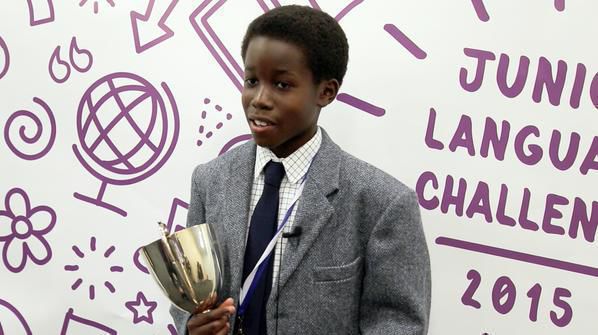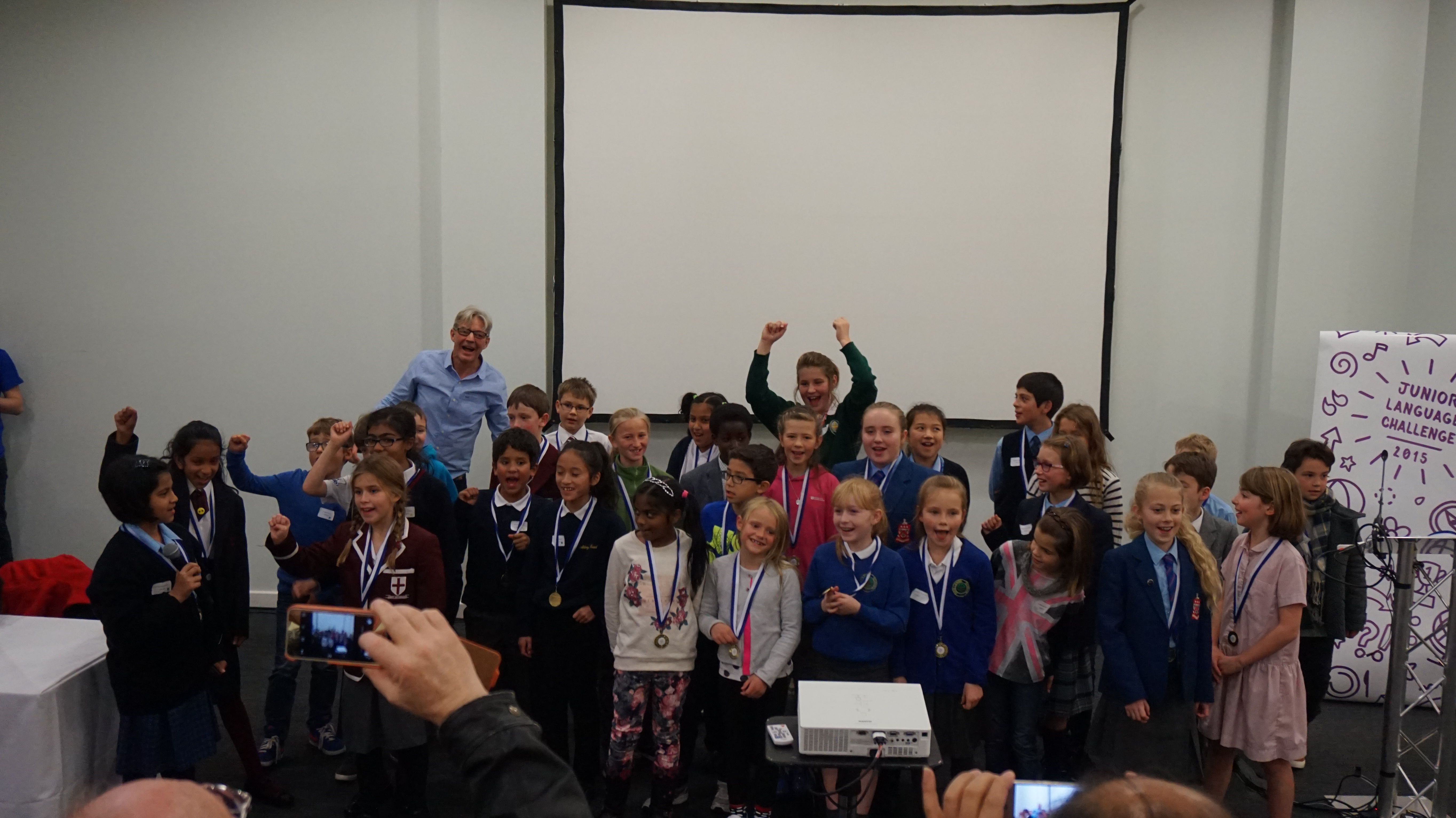The Jungle Book’s taught you some Hindi without you realising…
The majority of us have seen The Jungle Book or at least can hum along to ‘The Bare Necessities’. And we are super excited about the release of the new Jungle Book adaptation, so we thought we would find out how Rudyard Kipling came up with all of the animals’ names.
As the film is set in India, many of the names are based on the Hindi translation of the animal themselves. For example ‘Baloo’ is based on the Hindi word Bhãlū which means bear. Bears represented the idea of protection, courage and physical strength. The bear showed authority and was seen as a good omen and arguably Baloo is Mowgli’s main carer. Similarly, Bagheera is almost the same word as Baghirā which means black Indian leopard. This is the same with Hathi, which is the exact word for elephant in Hindi.
Kipling also used influences from Persian and Arabic, with the tiger’s name ‘Shere Khan’. The word for tiger in Persian is just ‘Shere’ which is followed by the Arabic word for lord ‘Khan’. Kipling surrounded Mowgli with animals that all represented strong and powerful companions. All of the animals that looked after Mowgli were given characteristics, which made them ideal for looking after the young boy.
Despite this, the main characte, Mowgli’s name hasn’t come from Hindi or any other Indian language. At times he is named ‘the frog’ due to his lack of ‘fur’ and inability to sit still, or ‘man cub’ by the wolves that raise him, but his name doesn’t actually translate into anything; Rudyard Kipling made it up. Kipling also stated that Mowgli is meant to be pronounced, mow-gli, with the ‘mow’ rhyming with ‘cow’.
The influence of Hindi and other Indian languages in The Jungle Book comes from Kipling’s upbringing in India. He was born there before moving to England to be educated when he was 5, and once he’d completed his education he returned to India. The book is based on the Indian jungle ‘Seonee’ (now known as seoni) however, he had never actually visited this place. Kipling actually used stories from his friends to set the scene of the jungle. Maybe his friends told him about the singing bear in the jungle…
#uTalkChallenge 2016: which language will you learn?
The uTalk Challenge is almost here!
From January 1st, start a new language for free, and learn as much as you can with our uTalk app by January 31st.
The uTalk challenge is open to everyone and totally free, so if you’d like to join in, you can find more details and sign up to the challenge here: eurotalk.com/utalkchallenge
With 130 languages to choose from (we’ve just added Greenlandic and Indian English to the app, so there’s now even more choice!), there’s something for everyone – and we’re certainly covering a variety of languages here in the EuroTalk office, where competition is bound to be fierce…
Safia – Mandarin Chinese
My mum and little sister despair at my lack of ability to speak any Mandarin so it’s probably about time to rectify the situation. And then they can’t gang up on me anymore when we play Mahjong!
Alex – Turkish
My best friend and her twin sister at uni are Turkish Cypriot, and they always speak Turkish between the two of them when they’re with us, so I want to be able to understand who or what they’re talking about.
Nat – Welsh
I always intended to move to Wales one day so thought I should learn a bit of the language – plus I’m interested to see how much my (limited) Cornish will help with Welsh!
Ioana – Argentinian Spanish
I want to be able to chat with the lovely non-English speaking relatives of my boyfriend, and also to unexpectedly add Spanish words to our daily conversations.
Adi – Arabic
I lived in Dubai for six years, and I hardly know any Arabic, so it’s high time.
Liz – Welsh
No particular reason, if I’m honest; I just fancy a challenge! I think trying to say Llanfairpwllgwyngyllgogerychwyrndrobwllllantysiliogogogoch whet my appetite…
Steve – Scots Gaelic
Scotland is one of my favourite places in the UK and I’d like to learn a Celtic language which is still spoken there.
Simon – Polish
It’s the second most common language spoken in the UK. It’s very different from anything I’ve learnt before, and would be interested to try and pick up a few words and sentences and then try and see if I can hear them in real life!
Brett – Arabic
I have been to the UAE on a couple of occasions this year. I am going again next year to meet some schools who need a solution to help get their English-speaking students to speak Arabic. If I’m trying to help them, then I should really learn it too.
Pablo – Romanian
My girlfriend is from Romania. I’ll try to be able to say something else other than her name and ‘da’.
Which language will you learn?
PS No EuroTalkers were harmed in the making of this blog post.
10 Years with the JLC – a Teacher’s story!
Here at EuroTalk we love hearing feedback from participants of the Junior Language Challenge! So when runner-up Aalaya Sanjeeva’s teacher Jackie Gliniecka from The Hawthorns School sent us this wonderful message about how she’s found being involved in the competition over the years, we had to share it with you 🙂
10 years ago, in 2005, we received a flyer from EuroTalk telling us about this competition, and we encouraged the children to enter it. It was an exciting adventure and we have repeated the experience every year since.
I remember so clearly, when we reached the semi-finals and I met Dick Howeson for the first time. His passion for languages and education, together with his compassion and drive to change the world, completely bowled me over; when talking about the competition to anyone and everyone who stands still for long enough to listen, I feel compelled to try and include a description of Dick. The best I can manage, to convey his wonderful energy, enthusiasm and gentle treatment of these young children combined with the fantastic difference that he encourages them all to make in the world, is a sort of cross between a kindly mad professor and a true saint! And what a fantastic team he has built up around him, too; Liz, who is always there to answer all queries in an incredibly efficient and kindly way so as to not scare the teachers and parents; Franco, who has the unenviable task of running the semi-finals and the finals with a rod of iron, yet maintaining a kindly, gentle, friendly demeanour so as not to scare the children; and countless others who make taking part in this competition a real joy.
Over the years, so many of my pupils have benefitted in so many ways from this wonderful competition; not only do they get the chance to try lots of different languages, thereby deepening their general knowledge of language and developing language learning strategies, but also it opens windows onto the world, helping to turn them into good global citizens, sowing the seeds that will encourage them, like Dick, to make a difference in the world. It is all done in such a gentle, fun way, encouraging independent learning, allowing the children to push themselves as far as they want to and at the same time helping the amazing work of the charities that the JLC support.
Aalaya has entered this competition 3 years in a row and has made the final each time. She was ecstatically happy to have come second this year and the whole school is so proud of her. This competition requires so much more than just the ability to acquire huge amounts of language in a very short space of time; you need a brilliant memory, a very cool head, nerves of steel, the ability to stay calm and focused and the faith to persevere under extreme pressure. What a brilliant set of skills to develop, and, although Aalaya has all these skills in bucketfuls, it has been so rewarding for me to see her develop and hone them enable her to achieve such a high standard in your competition.
The great thing is, though, as Dick always tells them, just to have entered makes them winners because of the good they are doing for others and the fun they have along the way!

Jackie (left) with Aalaya and her parents, alongside JLC champion Tudor Mendel-Idowu and fellow runners-up Cassandra Emmanuel and Isobel Eason
Look out for next week’s blog post to find out what second place finalist Aalaya and her mum Priya think about the Junior Language Challenge!
If you were part of the Junior Language Challenge in 2015 – or any previous year – and you’d like to share your story, please email us at jlc@eurotalk.com; we love hearing from our JLCers 🙂
Junior Language Challenge 2015 – The Final!
On Friday 16th October, our 33 Junior Language Challenge finalists came to London to battle it out to win the trophy. The children have learnt three languages during the course of the competition, with Portuguese being the first language, moving onto Mandarin for the semi-finals and Arabic being chosen as the final language.
All three heats at the final were extremely close, with several children having nearly perfect scores! Once all three were completed we paused for a lunch break, where a second competition took place… This year we decided to give the parents and teachers a chance to experience the JLC for themselves, and to see how they got on with the tricky Arabic language. This was as tense as the children’s rounds (with the parents obviously feeling pressure to do well!). It was clear to see many parents had been practising with their children, as some of the scores were amazing – congratulations to Sarah, who did brilliantly and definitely earned the bottle of champagne she took home with her!
The final round for the children got away and the top five places were constantly changing. Our resident evil genius, Franco, added to the suspense by keeping the top two scores a secret, so the winner wouldn’t be known right until the end. We were extremely lucky this year to have the winner of Channel 4’s Child Genius, Thomas Frith, to announce the winner of the JLC 2015….
Congratulations to Tudor Mendel-Idowu, the winner of this year’s Junior Language Challenge! Tudor gained over 300 points during the final round and won the top prize of a family trip to Malawi. This gives Tudor and his family the opportunity to see the excellent work that our charity, onebillion does there. Tudor, who like Thomas has been on Child Genius, has entered the Junior Language Challenge three times, coming third in 2013. “I’m very proud,” he told us afterwards. “All the hard work has paid off, because it’s been quite a long time! My favourite language this time was Mandarin, because I enjoyed the way it related to other languages I’d learnt before.”
Tudor’s prize was awarded by 12-year-old Thomas, who knows exactly how he feels after winning Child Genius earlier this year. Thomas also presented a cheque for £5,545 to Andrew Ashe from our charity, onebillion. The money will go towards the development of a solar-powered projector for teachers to use in primary schools in Malawi.
Our runners up this year also did amazingly in the final, with Aalaya Sanjeeva who came second and Isobel Eason who was just behind in third. The final was an excellent example of how brilliant all the children who took part in the JLC are at picking up languages – and also of the importance of perseverance; our top three had all taken part in the JLC in previous years. Every one of the 33 children that made it to the final should be so proud; you were all incredible! So thank you to: Olivia, Severin, Benjamin, Andrey, Gavin, Farah, Ritisha, Leyah, Saskia, Isobel, Aalaya, Nithya, Cristina, Cassandra, Anais, Isabella, Laura, Jamie, Reuben, Lydia, Aurelio, Rona, Ethan, Abigail, Monisha, Ben, Benitto, Grace L, Grace B, Louis, Sumayyah, Emma and Tudor, for taking part and putting so much effort into the JLC!
If you would like to know more about the Junior Language Challenge and how to take part in 2016, please sign up to our mailing list on the JLC website; you can also find out more about the JLC there too, or email us with any questions.
In the words of our brilliant guest, Thomas: “Languages are really important, they’re fun, they stretch your mind and let you talk to other people, which I feel is polite, rather than expecting everyone else to learn English.” We couldn’t agree more.
The JLC will return in March 2016 and we hope it’ll be bigger and better than ever!








